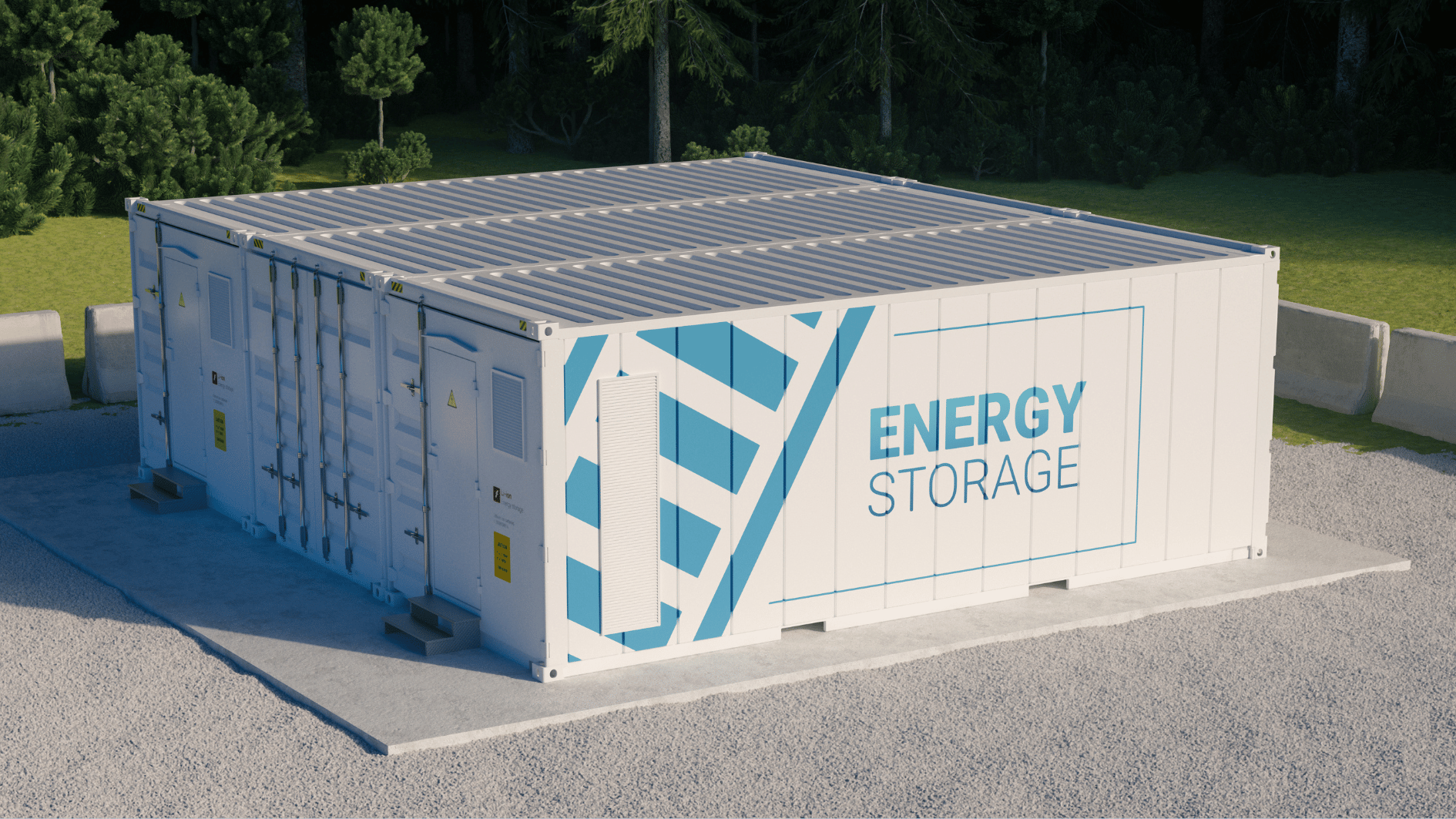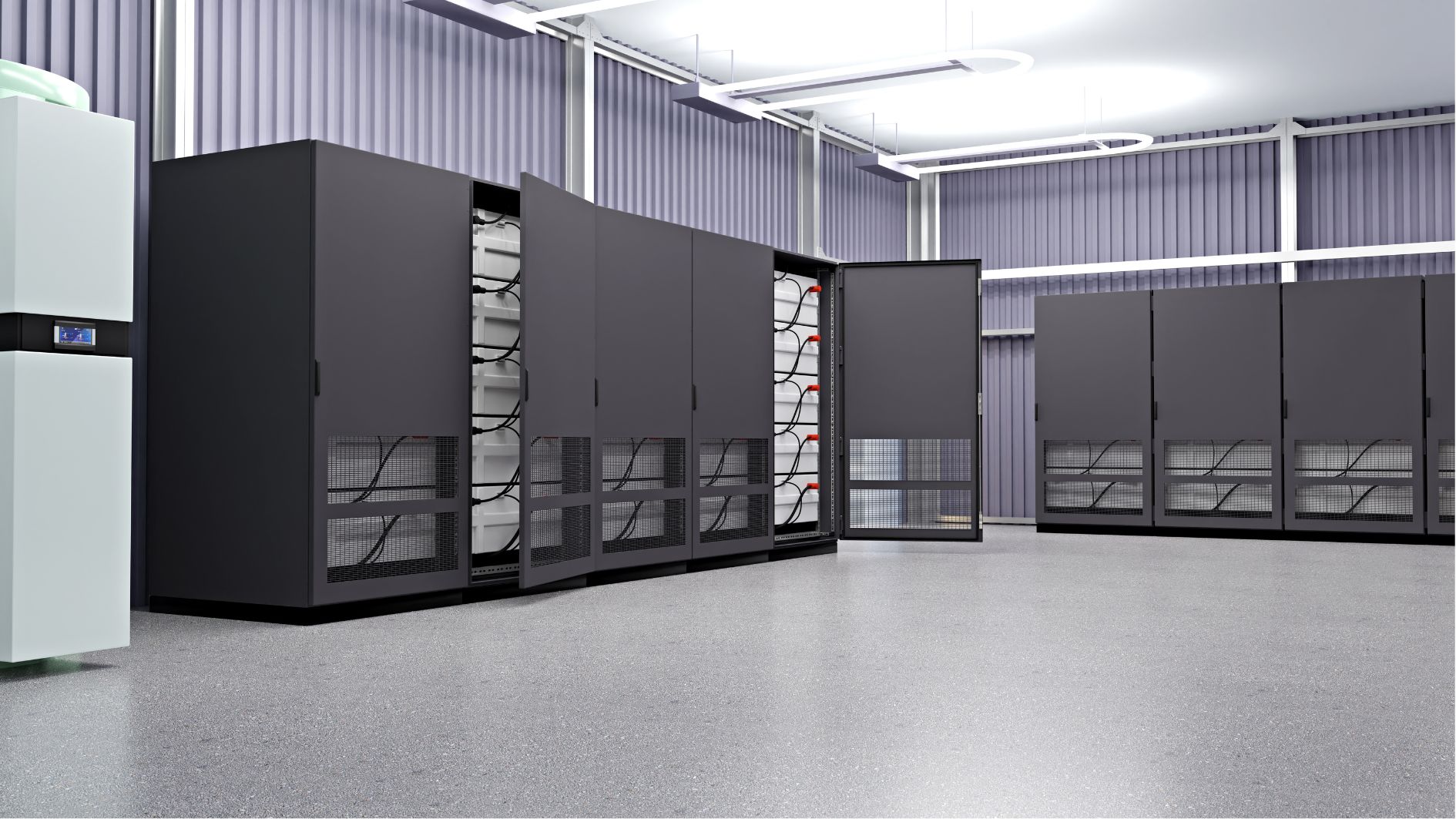Image source: Canva.com
With interest in energy storage technologies on the rise, it’s essential to understand how these systems function. Knowing how energy storage integrates with solar panel systems – and with your home or business – can help you decide if it’s the right choice for you.
Here, we’ll walk you through how energy storage systems work with solar power and what to expect from your storage system. We’ll also take a technical look at what happens inside your battery to store that energy.
An Overview of How Solar Batteries Work Step-by-Step
At a high level, solar batteries store energy for later use. If you have a home solar panel system, here are the key steps to understand:
- Solar panels generate electricity from the sun.
- This direct current (DC) electricity flows through an inverter to generate alternating current (AC) electricity.
- The AC electricity powers your home appliances.
- Extra electricity not used by your appliances charges your batteries.
- When the sun goes down, your appliances are powered by the stored energy in your battery.

Islanding and Battery Backup: Essential Information You Need to Know
Integration of Solar Panels and Batteries: How It Works
To understand how batteries work with solar panels, it’s helpful to review how solar panel systems operate.
Typically, a ‘grid-tied,’ net-metered solar panel system is installed. This means excess electricity produced by your panels can be sent back to the grid, and you can draw electricity from the grid when your panels don’t produce enough. Net metering allows your electricity meter to run in reverse when you send extra energy to the grid and forward when you draw from it, with your utility billing you for the net usage.
With a solar plus storage system, excess electricity can charge your energy storage system instead of going to the grid. After sunset, you can draw from your solar battery instead of relying on the electric grid.
Benefits of a Solar Plus Storage System
Installing a battery with your solar panel system allows you to pull power from either the grid or your battery. This has two major benefits:
Backup Power
- Even though you’ll still be connected to the grid, a solar plus storage system lets you operate “off-grid,” creating an energy island at your home. During an outage, you’ll still have power.
- Note: Without a battery, a solar panel system will shut down during a power outage to prevent electricity from feeding into the grid, which could endanger utility workers.
- Most batteries provide backup power for selected parts of your home. You’ll need to choose which areas to back up and connect them to a critical load panel. Some batteries can be “stacked” to increase storage capacity for whole-home backup, though this can be expensive.
Cost Savings
- Batteries can help you avoid high utility rates by allowing you to draw from your battery instead of the grid during peak hours.
- For those on time-of-use rates, you can use stored energy during expensive peak times.
- For commercial and industrial customers with demand charges, batteries can help reduce these charges significantly.

Understanding the Right Solar Battery Choice
Understanding Energy Storage in Batteries
Now that you understand how storage works with solar, you can decide whether to add storage to your solar panel system. Here’s a closer look at how batteries store energy:
How Lithium-Ion Batteries Work
- Lithium-ion batteries are the most common for home energy storage, also used in everyday devices and electric vehicles.
- They move lithium ions through an electrolyte inside the battery. The movement of these ions from an anode to a cathode produces free electrons, charging the battery.
- When discharging, the flow of lithium ions is reversed. This process is repeatable hundreds or thousands of times.
- Home energy storage systems combine multiple lithium-ion cells with power electronics to control performance and safety.
- Different lithium-ion batteries offer varied attributes, like improved power density or longer lifetimes, based on their specific chemistries.
Other Battery Types
- While lithium-ion is prevalent, other types of batteries are also used in home, business, and utility-level energy storage, each with unique pros and cons.
Understanding these basics equips you to make an informed decision about integrating energy storage with your solar power system.





